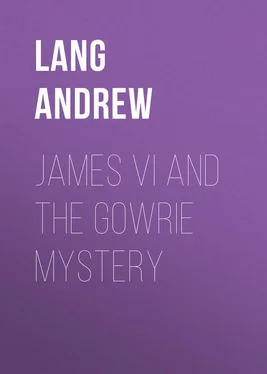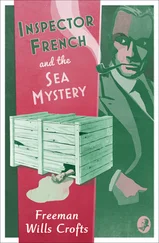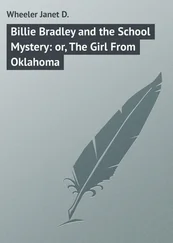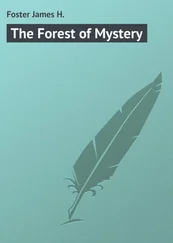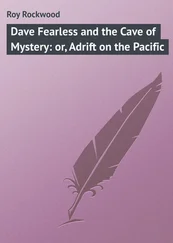Andrew Lang - James VI and the Gowrie Mystery
Здесь есть возможность читать онлайн «Andrew Lang - James VI and the Gowrie Mystery» — ознакомительный отрывок электронной книги совершенно бесплатно, а после прочтения отрывка купить полную версию. В некоторых случаях можно слушать аудио, скачать через торрент в формате fb2 и присутствует краткое содержание. Жанр: foreign_antique, foreign_prose, на английском языке. Описание произведения, (предисловие) а так же отзывы посетителей доступны на портале библиотеки ЛибКат.
- Название:James VI and the Gowrie Mystery
- Автор:
- Жанр:
- Год:неизвестен
- ISBN:нет данных
- Рейтинг книги:5 / 5. Голосов: 1
-
Избранное:Добавить в избранное
- Отзывы:
-
Ваша оценка:
- 100
- 1
- 2
- 3
- 4
- 5
James VI and the Gowrie Mystery: краткое содержание, описание и аннотация
Предлагаем к чтению аннотацию, описание, краткое содержание или предисловие (зависит от того, что написал сам автор книги «James VI and the Gowrie Mystery»). Если вы не нашли необходимую информацию о книге — напишите в комментариях, мы постараемся отыскать её.
James VI and the Gowrie Mystery — читать онлайн ознакомительный отрывок
Ниже представлен текст книги, разбитый по страницам. Система сохранения места последней прочитанной страницы, позволяет с удобством читать онлайн бесплатно книгу «James VI and the Gowrie Mystery», без необходимости каждый раз заново искать на чём Вы остановились. Поставьте закладку, и сможете в любой момент перейти на страницу, на которой закончили чтение.
Интервал:
Закладка:
Finally, we have the evidence of the only living man, except the King, who was present at the central point of the occurrences. That this man was a most false and evasive character, that he was doubtless amenable to bribes, that he was richly rewarded, I freely admit. But I think it can be made probable, by evidence hitherto overlooked, that he really was present on the crucial occasion, and that, with all allowances for his character and position, his testimony fits into the facts, while, if it be discarded, no hypothesis can account for him , and his part in the adventure. In short, the King’s tale, almost incredible as it appears, contains the only explanation which is not demonstrably impossible. To this conclusion, let me repeat, I am drawn by no sentiment for that unsentimental Prince, ‘gentle King Jamie.’ He was not the man to tell the truth, ‘if he could think of anything better.’ But, where other corroboration is impossible, by the nature of the circumstances, facts corroborate the King’s narrative. His version ‘colligates’ them; though extravagant they become not incoherent. No other hypothesis produces coherency: each guess breaks down on demonstrated facts.
II. THE SLAUGHTER OF THE RUTHVENS
In the month of August 1600 his Majesty the King of Scotland, James, sixth of that name, stood in more than common need of the recreation of the chase. Things had been going contrary to his pleasure in all directions. ‘His dearest sister,’ Queen Elizabeth (as he pathetically said), seemed likely ‘to continue as long as Sun or Moon,’ and was in the worst of humours. Her minister, Cecil, was apparently more ill disposed towards the Scottish King than usual, while the minister’s rival, the Earl of Essex, had been suggesting to James plans for a military demonstration on the Border. Money was even more than normally scarce; the Highlands were more than common unruly; stories of new conspiracies against the King’s liberty were flying about; and, above all, a Convention of the Estates had just refused, in June, to make a large grant of money to his Majesty. It was also irritating that an old and trusted servant, Colonel Stewart, wished to quit the country, and take English service against the Irish rebels. This gentleman, sixteen years before, had been instrumental in the arrest and execution of the Earl of Gowrie; the new young Earl, son of the late peer, had just returned from the Continent to Scotland, and Colonel Stewart was afraid that Gowrie might wish to avenge his father. Therefore he desired to take service in Ireland.
With all these frets, the King needed the refreshment of hunting the buck in his park of Falkland. He ordered his own hunting costume; it was delivered early in August, and (which is singular) was paid for instantly. Green English cloth was the basis of his apparel, and five ounces of silver decorated his second-best ‘socks.’ His boots had velvet tops, embroidered; his best ‘socks’ were adorned with heavy gold embroidery; he even bought a new horse. His gentlemen, John Ramsay, John Murray, George Murray, and John Auchmuty, were attired, at the Royal expense, in coats of green cloth, like the King. 3 3 Extracted from the Treasurer’s Accounts, July, August, 1600. MS.
Thus equipped, the Royal party rose early on the morning of Tuesday, August 5, left the pleasant house of Falkland, with its strong round towers that had lately protected James from an attack by his cousin, wild Frank Stewart, the Earl of Bothwell; and rode to the stables in the park; ‘the weather,’ says his Majesty, ‘being wonderful pleasant and seasonable.’ 4 4 The King’s Narrative, Pitcairn’s Criminal Trials of Scotland , ii. 210.
‘All the jolly hunt was there;’ ‘Tell True’ and the other hounds were yelping at the limits of their leashes; the Duke of Lennox and the Earl of Mar, friends of James from his youth, and honourable men, were the chief nobles in the crowd; wherein were two or three of the loyal family of Erskine, cousins of Mar, and a Dr. Herries, remarkable for a club foot.
At the stables, hacks were discarded, hunters were led out, men were mounting, the King had his foot in the stirrup, when a young gentleman, the Master of Ruthven, rode swiftly up from the town of Falkland. He had trotted over, very early, from the town house, at Perth (some twelve or fourteen miles away), of his brother, the Earl of Gowrie. He was but nineteen years of age, tall, handsome, and brother of the Queen’s favourite maid of honour, Mrs. Beatrix Ruthven. That he was himself one of the Gentlemen of the Household has often been said, but we find no trace of money spent for him in the Royal accounts: in fact he had asked for the place, but had not yet obtained it. 5 5 The King’s Narrative, ut supra . Treasurer’s Accounts, MS.
However, if we may believe the Royal word (which is a matter of choice), James ‘loved the young Master like a brother.’
The Master approached the King, and entered into conversation with him. James’s account of what he had to say must be given later. For the present we may be content with the depositions on oath, which were made later, at a trial in November, by the attendants of the King and other witnesses. Among these was the Duke of Lennox, who swore to the following effect. They hunted their buck, and killed him. The King, in place of trotting back to lunch at the House of Falkland (to which the progress of the chase had led the sportsmen round in a circle), bade the Duke accompany him to Perth, some twelve miles away, ‘to speak with the Earl of Gowrie.’ His Majesty then rode on. Lennox despatched his groom for his sword, and for a fresh horse (another was sent after the King); he then mounted and followed. When he rejoined James, the King said ‘You cannot guess what errand I am riding for; I am going to get a treasure in Perth. The Master of Ruthven’ (‘Mr. Alexander Ruthven’) ‘has informed me that he has found a man with a pitcher full of gold coins of great sorts.’ James also asked Lennox what he deemed of the Master, whose manner he reckoned very strange. ‘Nothing but an honest, discreet gentleman,’ said the Duke. The King next gave details about the treasure, and Lennox said he thought the tale ‘unlikely,’ as it was, more or less. James then bade Lennox say nothing on the matter to Ruthven, who wanted it to be a secret. At about a mile from Perth, the Master galloped forward, to warn his brother, the Earl, who met the Royal party, on foot, with some companions, near the town. 6 6 Lennox in Pitcairn, ii. 171–174.
This was about one o’clock in the afternoon.
The Royal party, of thirteen nobles and gentlemen, then entered the Earl’s house. It faced the street, as the House of Falkland also does, and, at the back, had gardens running down to the Tay. It is necessary to understand the situation and topography of Gowrie House. Passing down South Street, or ‘Shoe Gait,’ the chief street in Perth, then a pretty little town, you found it crossed at right angles by a street called, on the left, Water Gate, on the right, Spey Gate. Immediately fronting you, as you came to the end of South Street, was the gateway of Gowrie House, the garden wall continuing towards your right. On your left were the houses in Water Gate, occupied by rich citizens and lairds. Many will understand the position if they fancy themselves walking down one of the streets which run from the High Street, at Oxford, towards the river. You then find Merton College facing you, the street being continued to the left in such old houses as Beam Hall. The gate of Gowrie House fronted you, as does the gate-tower of Merton, and led into a quadrangle, the front court, called The Close. Behind Gowrie House was the garden, and behind that ran the river Tay, as the Isis flows behind Merton and Corpus. Entering the quadrangle of Gowrie House you found, on your right and facing you, a pile of buildings like an inverted L (┐). The basement was occupied by domestic offices: at the angle of the ┐ was the main entrance. On your right, and much nearer to you than the main entrance, a door opened on a narrow spiral staircase, so dark that it was called the Black Turnpike.
Читать дальшеИнтервал:
Закладка:
Похожие книги на «James VI and the Gowrie Mystery»
Представляем Вашему вниманию похожие книги на «James VI and the Gowrie Mystery» списком для выбора. Мы отобрали схожую по названию и смыслу литературу в надежде предоставить читателям больше вариантов отыскать новые, интересные, ещё непрочитанные произведения.
Обсуждение, отзывы о книге «James VI and the Gowrie Mystery» и просто собственные мнения читателей. Оставьте ваши комментарии, напишите, что Вы думаете о произведении, его смысле или главных героях. Укажите что конкретно понравилось, а что нет, и почему Вы так считаете.
